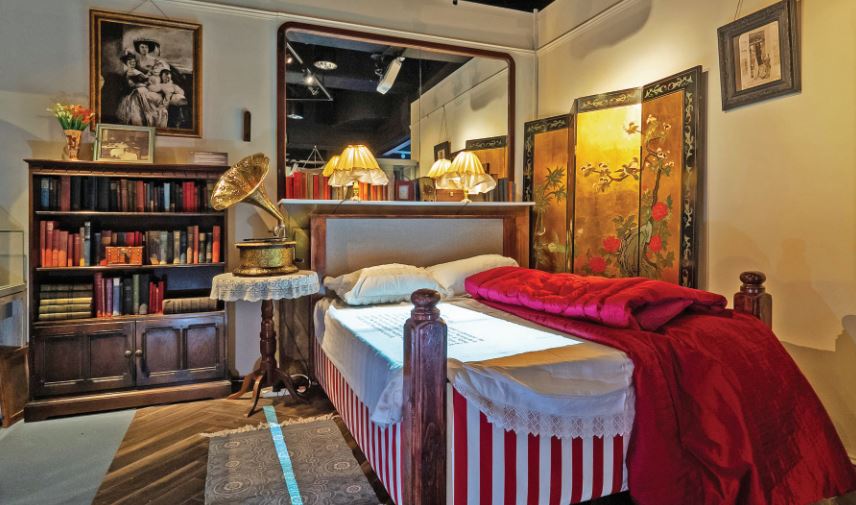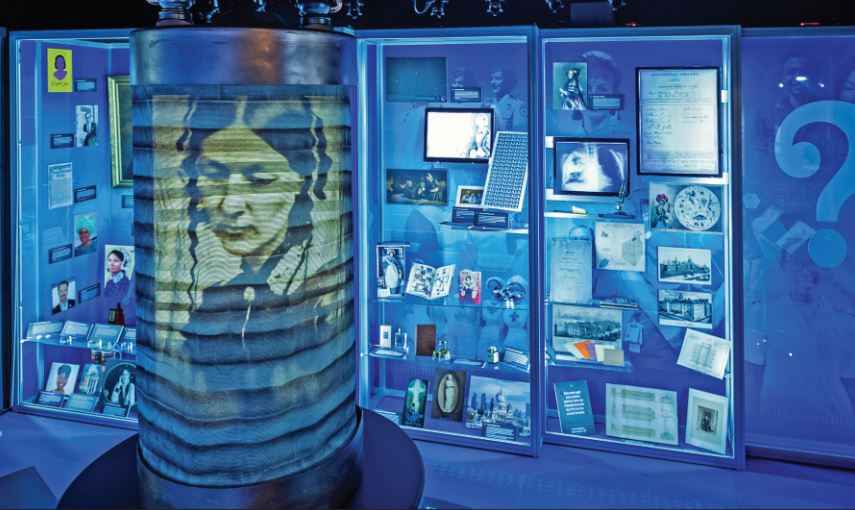Exhibition shines a new light on Nightingale, the famed lady with the lamp


An exhibition to mark the bicentenary of the birth of the founder of modern nursing, Florence Nightingale, has opened at St Thomas' Hospital in London, home of the Nightingale Museum.
Nightingale in 200 Objects, People and Places, which opened on International Women's Day, is part of a year-long festival of events to pay tribute to the healthcare pioneer, and will be enhanced by an online digital offering and a pop-up exhibit that will tour hospitals nationwide.
Born into a wealthy family, almost single-handedly Nightingale created the modern nursing profession, through her work at British military hospitals during the Crimean War (1853-56). After returning home, she spent the rest of her life codifying nursing rules and campaigning on healthcare issues.
In 1912, the International Committee of the Red Cross instituted the Florence Nightingale Medal as the world's highest nursing honor, and one of 2019's recipients was Li Hong, vice-president of Fujian Provincial Hospital, who was honored for her active work in disaster situations and in the areas of public health and nursing education.
"Wherever I go in the world, people know who Florence Nightingale is and hold her in high esteem-not just nurses, everyone knows something about her," said museum director David Green. "Her name is such a benchmark of quality, she has had a global impact but it's no surprise because one thing that binds us together is that we will all at some point need a nurse and a midwife."
The disastrous nature of the Crimea campaign meant that, in the new era of journalists sending stories back by telegraph, there were no political or military heroes, so the unlikely story of an educated upper-class woman tending to the sick proved hugely popular and helped create the popular image of Nightingale as "the lady with the lamp".

"She was a ready-made hero, but she was a hard worker who didn't want to be a celebrity, so journalists filled in some of the gaps to create the myth, but what is undeniable is that she was an amazing manager and a compassionate individual who insisted her nurses meet her own standards," Green explained.
The exhibition contains an array of memorabilia, including the sash she designed to be worn at the Scutari hospital as the first nursing uniform, personal correspondence, her own medicine chest, an audio recording of her voice, and the actual lamp she carried on her rounds, a Turkish lantern called a fanoos, rather than the commonly depicted candle in the glass lamp.
Nightingale returned from Crimea with a condition called brucellosis, which left her largely bedbound, and, very possibly, with post-traumatic stress. But she devoted the rest of her life to campaigning on healthcare issues and writing, and her 1859 book Notes on Nursing with its common-sense guidance on hygiene remains a cornerstone of nursing instruction worldwide.
Nightingale's restricted mobility is one of the reasons for the inclusion of a traveling pop-up display and an online experience for enthusiasts around the world, alongside the museum experience.
"As she was bedbound, we know she wouldn't have been able to visit our museum, and she has true global appeal, which is why we're sharing exhibits online," said Green. "Also, 2020 is the International Year of the Nurse and Midwife, so it's important to take her story to the world, and into hospitals, for patients."
The exhibition coinciding with the worldwide novel coronavirus outbreak not only adds to the usefulness of the digital offering, but underlines the importance of its message.
"When Nightingale turned up at the military hospital it was disease-ridden but she got people wearing clean uniforms and washing hands, which made a difference, and when she got back she crunched the data, which is now such an important part of modern life," said Green. "Evidence-based nursing, data, and hygiene all started with her and they're key to how we'll solve the current crisis. A lot of it comes back to Nightingale herself."
Nightingale in 200 Objects, People and Places runs from Sunday to March 7, 2021.


















